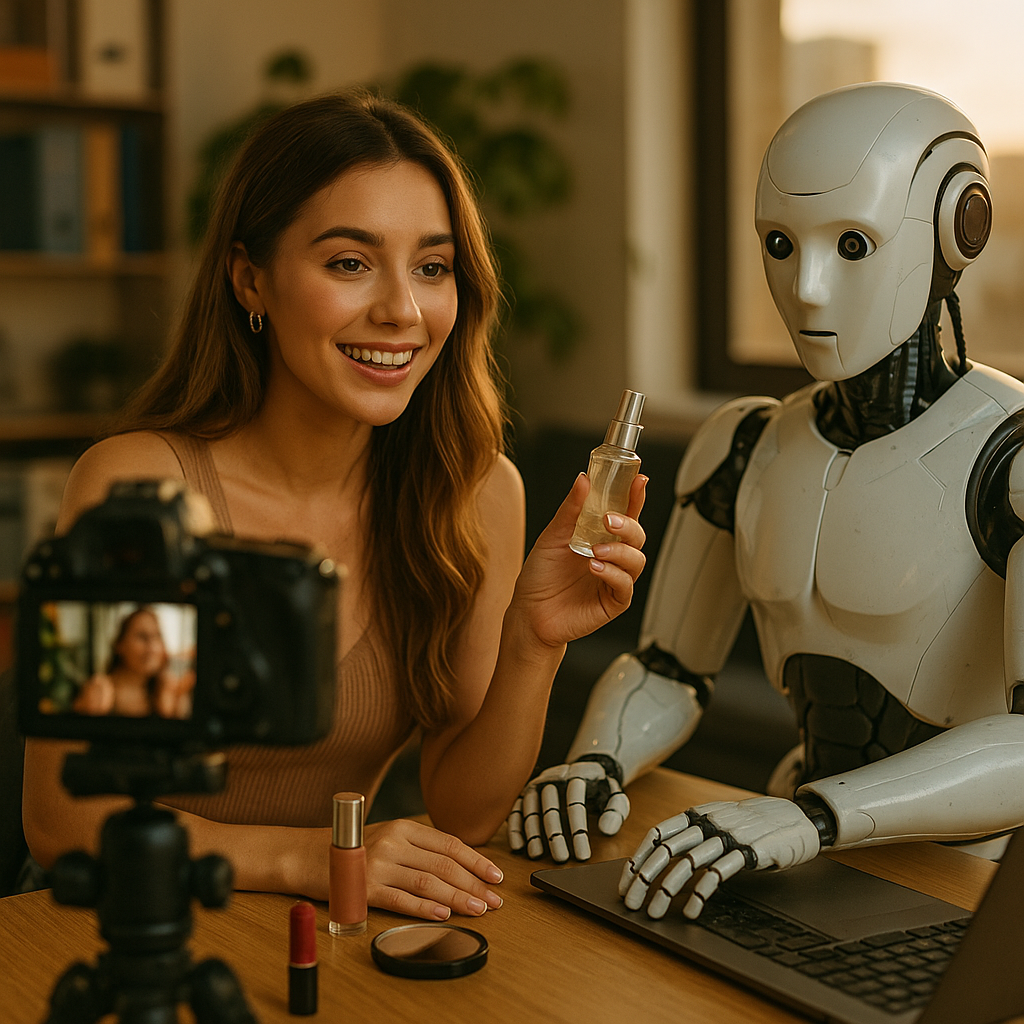Robotic Process Automation for influencer campaign management is transforming how brands collaborate with influencers, saving time and boosting ROI. By automating repetitive tasks, RPA streamlines campaign workflows, from vetting influencers to analyzing results. But how does this cutting-edge technology actually work in practice—and what are its real benefits for marketers in 2025?
Understanding Robotic Process Automation in Influencer Marketing
Robotic Process Automation (RPA) refers to the use of software bots that mimic human actions to automate rule-based tasks across digital platforms. In influencer marketing, these bots can interact with multiple systems—social media, email, data analytics, and CRM software—without changing existing infrastructure. This leads to seamless, efficient management of campaigns.
Modern influencer campaigns involve a maze of processes: identifying relevant influencers, negotiating contracts, content approval, scheduling, performance tracking, and reporting. Manual execution introduces errors and delays. By automating these processes, brands and agencies dramatically increase operational efficiency while minimizing human error.
Optimizing Influencer Selection With RPA Tools
The influencer discovery phase is critical. Traditionally, marketers sifted through profiles manually, risking oversight and bias. RPA tools for influencer discovery use advanced algorithms to scan social media, assess engagement rates, vet audience authenticity, and analyze content relevance.
- Automated scraping: RPA bots collect data from Instagram, TikTok, and YouTube at massive scale.
- Data analysis: Bots assess influencer demographics, engagement history, and brand safety signals.
- Automated shortlisting: Only influencers who fit precise campaign criteria are submitted for human review.
This automation accelerates influencer outreach cycles and ensures unbiased, data-driven selection, helping brands avoid costly mismatches or fraudulent partners.
Streamlining Campaign Execution and Communication
RPA for campaign execution eliminates much of the back-and-forth via email or messaging platforms. Bots can auto-generate contracts, send onboarding materials, and schedule content submissions across time zones. For agencies managing dozens of campaigns, this means highly scalable operations.
- Template-driven emails: Automatically dispatch NDAs, briefs, or feedback forms at key milestones.
- Scheduling: Integrate with publishing tools to coordinate go-live dates and times per influencer.
- Centralized dashboards: Real-time updates allow managers to track campaign status, reducing oversight gaps.
With RPA, campaign managers gain bandwidth to focus on creative strategy and relationship building—tasks that require uniquely human touch.
Automating Campaign Analytics and Reporting
Measuring ROI in influencer campaigns is complex but vital. Automated campaign analytics powered by RPA extract performance metrics like reach, impressions, engagement, click-throughs, and conversions across platforms—without manual data entry.
- Data aggregation: Bots pull reports from Instagram Insights, YouTube Analytics, and web traffic dashboards.
- Custom dashboards: Create branded, shareable reports for internal or client review, updated in real time.
- Anomaly detection: Spot suspicious spikes or declines instantly for quick optimization.
These analytics enable marketers to make data-backed decisions on influencer selection, budget allocation, and creative direction for current and future campaigns, sharpening competitive edges in 2025’s crowded digital landscape.
Ensuring Compliance and Reducing Fraud With RPA
Campaign compliance automation is crucial as brands face increasing regulations and influencer transparency standards. RPA can monitor posts for required disclosures (like #ad), copyright adherence, and regional rules—all at scale.
- Disclosure checks: Bots scan influencer-generated content to ensure that all paid relationships are properly tagged.
- Audience audits: Automate periodic review of fake followers or engagement manipulation, curbing influencer fraud.
- Record-keeping: Maintain searchable logs of approvals and posts for legal verification.
This automatic oversight limits brand liability, fosters trust, and makes demonstrating compliance straightforward in audits or legal disputes.
Challenges and Best Practices in Deploying RPA for Influencer Campaigns
While RPA offers powerful advantages, successful implementation demands a strategic approach. Common RPA deployment challenges include initial setup complexity, integration with legacy systems, and managing change among creative teams.
- Start small: Automate repetitive, standardized tasks before expanding to complex workflows.
- Prioritize data security: Ensure RPA tools comply with privacy laws, especially when handling influencer PII.
- Involve all stakeholders: Train both marketers and influencers to work efficiently with automated systems.
- Measure and optimize: Continuously monitor RPA performance and adapt processes for maximum ROI.
By following these best practices, brands and agencies can scale their influencer campaigns confidently, with RPA enhancing—not replacing—the creativity that drives genuine connections.
Conclusion: The Future of Influencer Campaigns With RPA
Robotic Process Automation for influencer campaign management is a game changer in 2025—streamlining everything from selection to compliance. By automating repetitive steps, brands gain speed, accuracy, and strategic insight, freeing teams to focus on authentic partnerships and innovation. Embracing RPA today is essential for marketers seeking a competitive edge in digital influence.
FAQs: Robotic Process Automation For Influencer Campaign Management
-
How does RPA improve efficiency in influencer campaigns?
RPA automates repetitive tasks such as influencer vetting, contract management, scheduling, and analytics—reducing manual work and enabling campaign managers to focus on strategy and relationship building.
-
Can RPA prevent influencer fraud?
Yes. Bots can regularly audit influencer profiles for fake followers or artificial engagement, and monitor posts for compliance with advertising standards, minimizing fraud risks and protecting brand integrity.
-
Is RPA suitable for small agencies or brands?
Absolutely. With cloud-based RPA tools now more affordable and accessible, even small teams can automate labor-intensive processes and compete with larger players in influencer marketing.
-
Will RPA replace human marketers in influencer campaigns?
No. RPA augments human creativity and judgment by handling repetitive, rules-based tasks. The best results combine automation with human relationships and strategic insight.
-
What features should I look for in an RPA tool for influencer marketing?
Look for seamless integration with social media platforms, customizable workflow design, robust data analytics, compliance monitoring, and user-friendly dashboards.
